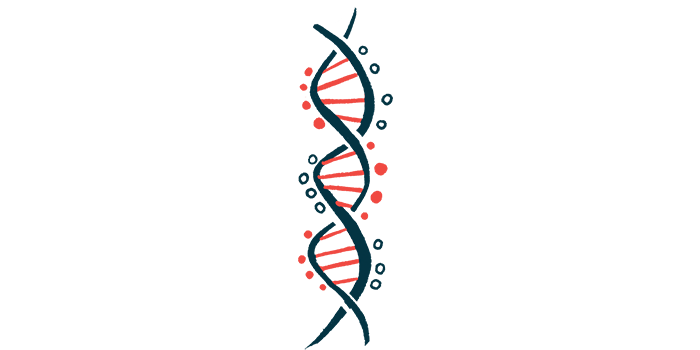Centogene, MJFF partner to study GBA gene in Parkinson’s patients
Project will investigate genetic risk factors using dried blood samples

Centogene and The Michael J. Fox Foundation (MJFF) are teaming up on a research project to investigate genetic risk factors for Parkinson’s disease, with a particular focus on GBA gene mutations.
This project’s main goal is to better understand how certain variations in the GBA gene are connected to Parkinson’s.
The collaboration will make use of Centogene’s Biodatabank of large-scale biological data, which contains more than 15,000 Parkinson’s disease datasets from ROPAD, an international observational study of Parkinson’s genetics.
“By providing a more complete understanding of the way that the GBA gene interacts with multiple biological pathways, we can elucidate targets that can be used to develop more precise disease-modifying therapeutics for Parkinson’s patients in the future,” Peter Bauer, MD, Centogene’s chief medical and genomic officer, said in a company press release.
“Combining MJFF’s extensive expertise and resources with our deep understanding of the links between rare and neurodegenerative diseases, we will be able to generate pivotal … insights into the role of specific variants in the GBA gene,” Bauer said.
Partners to make use of Centogene’s Biodatabank repository
Parkinson’s is caused by the progressive dysfunction and death of dopaminergic neurons — brain nerve cells responsible for producing and releasing dopamine. That neurotransmitter is used by nerve cells to communicate.
In about 5% to 10% of cases, the disease is caused by mutations in a single gene, such as the GBA gene.
Variants in this gene impair the body’s ability to break down certain fats, leading to an accumulation of harmful substances inside neurons. This contributes to the development of Parkinson’s symptoms, including tremors, rigidity, and slowness of movements.
The Rostock International Parkinson’s Disease Study, known as ROPAD (NCT03866603) and sponsored by Centogene, is investigating genetic variability in Parkinson’s. It’s led by Bauer as principal investigator. A particular focus of the study is assessing the prevalence of mutations in the LRRK2 gene, as well as identifying new genes and mutations associated with Parkinson’s.
The study’s genetic analyses are based on dried blood spot collection, which uses Centogene’s proprietary kit to collect dried blood samples in combination with state-of-the-art genetic sequencing technologies.
The Centogene Biodatabank is the largest real-world data repository for rare and neurodegenerative diseases. It includes large-scale biological data, as well as clinical and populational information. It contains samples from more than 800,000 patients in more than 120 countries, representing more than 2,500 diseases.
Understanding the different factors that actually cause Parkinson’s disease are critical to advancing treatments.
This new collaboration with MJFF aims to accelerate research on genetic risk factors for Parkinson’s and contribute to improving disease diagnosis, and assessment of disease progression and treatment.
“This project … will play a pivotal role in our global efforts to better understand the genetic factors of Parkinson’s,” said Shalini Padmanabhan, PhD, MJFF’s vice president of discovery and translational research.
“We are committed to working together [with Centogene] to … drive the most comprehensive understanding of this disease and accelerate the development of life-saving treatments for patients worldwide,” Padmanabhan said, adding that “understanding the different factors that actually cause Parkinson’s disease are critical to advancing treatments.”







